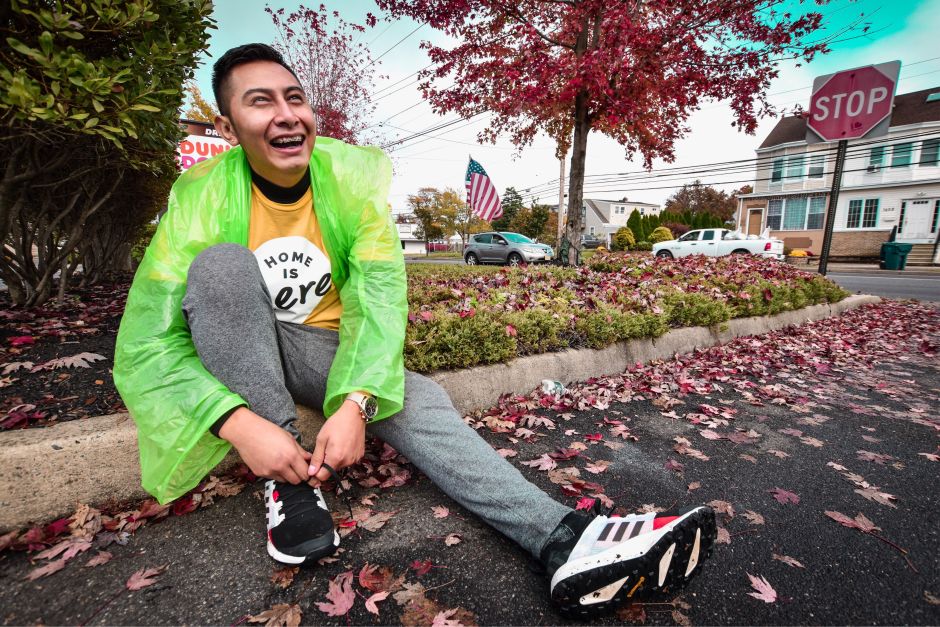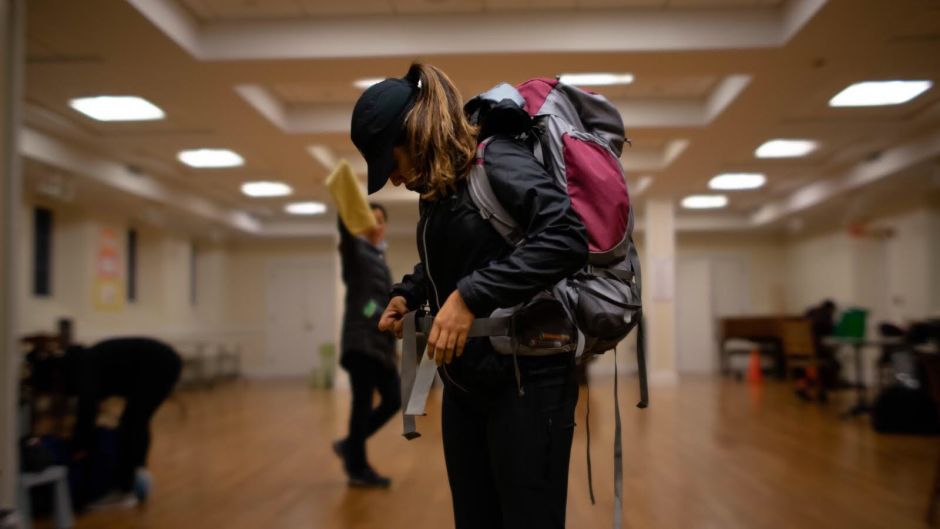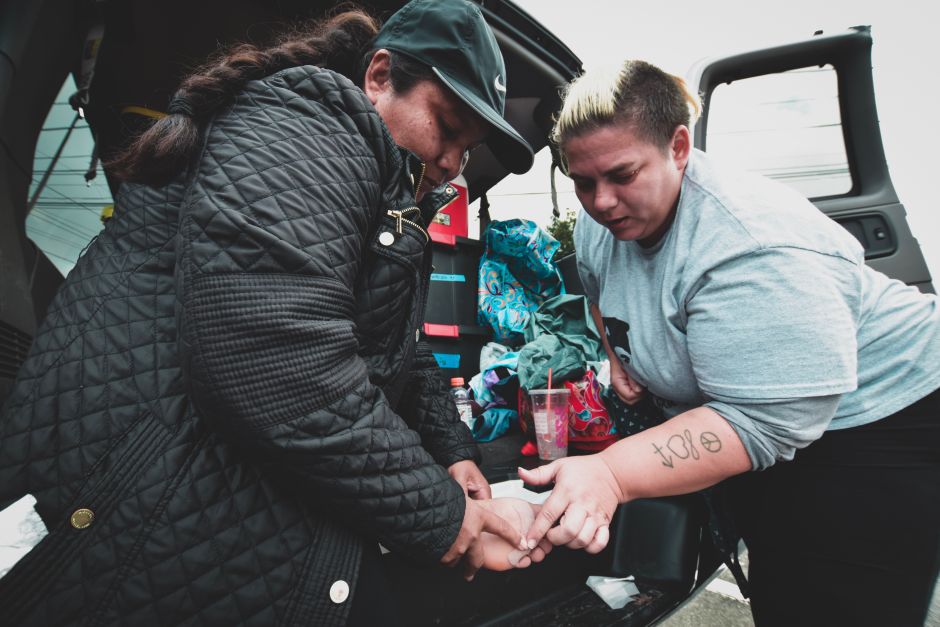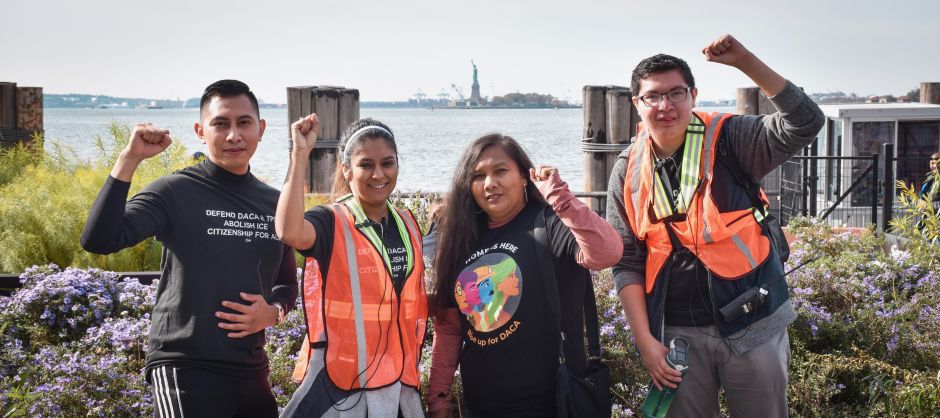The march wants to raise awareness about the contributions of the beneficiaries of these programs, prior to the hearing in the Supreme Court
Mariana Magaña's feet and knees are starting to hurt. His body already resents the first five days of the March #NuestroHogar (in English #HomeIsHere) in favor of the Deferred Action for Childhood Arrivals (DACA) and Temporary Protection Status (TPS) program.
As part of the campaign to defend DACA and TPS, seven members of the Immigrant Rights Coalition (CHIRLA) joined hundreds of people in the 230-mile march between New York and Washington D.C. which began on October 26 and will end on November 10. Among the sponsors of the march is CHIRLA.
The march takes place as a prelude to the hearing in the Supreme Court of the Nation that has planned on November 12 to hear oral arguments to determine the legality of the cancellation of DACA. Since it was eliminated by President Trump in September 2017, DACA has overcome numerous legal challenges, but that of November 12 is a decisive date. Depending on the arguments, the Supreme Court will define between January and June if it was legal for President Trump to end DACA. That decision will define the fate of hundreds of thousands of families.

Nearly 800,000 people have benefited from DACA since it began in 2012.
Mariana says they walk every day from 9 in the morning until 5 in the afternoon. “We stop just to drink water, eat lunch and rest a little,” he says.
The first days have touched a lot of rain. "There have been a few days that we end up soaked," he says.
Mariana is a graduate of Political Science from the University of California, Los Angeles; and works for CHIRLA in the Department of Policies to Protect the Immigrant Community.
She was born in Guadalajara, Mexico. Her family brought her to the United States one year after she was born. In 2012 he supported the DACA.
“The most important thing is that it gave me protection against deportation and the opportunity to work and continue to succeed in my career in this country. It took away my fear of being arrested; and not to return home, ”he observes.

The marchers are determined to walk 18 days to bring national awareness about the opening of arguments in DACA cases before the Supreme Court.
The goal, they say, is to build national support, draw attention to this issue and demand that the courts fail on the side of history.
“I decided to participate in this march to fight and defend the DACA program, but at the end of the day we know that this program is temporary. We are fighting for something permanent not only for ourselves but for families and parents. A deportation not only destroys the deported person but also a family and the entire community. We want permanent protection, ”says Mariana who will walk to Washington.
The seven California marchers are beneficiaries of the DACA program. They they are Cristian Bolio, a computer science student at the Los Angeles Community College; Mariana Magaña who lives in Venice; Narciso Ibarra, a psychology student at CSU Channel Islands; and Luis Tadeo who lives in Los Angeles. But he also travels with them, Carolina Morán, mother of four young people with DACA who lives in the San Fernando Valley. They will be joined in the next few days by their daughter Lizeth Morán, a Cal Poly Pomona student who came to the United States when she was two years old.

Carolina, the mother of four children DACA, left her job in house cleaning in Los Angeles to go to the East Coast and march through this program.
"I was encouraged by my four children and the stories of other boys who have made a life here. They have bought a house, a car and have good jobs. They arrived little ones; and it’s not fair that they’re going to take everything away, ”he adds.
Carolina's children are: Itzel, 26, who came to the country at age 11. She works as a paralegal and is the mother of a four-year-old child. His twins: Francisco and Christian, 25, who reached the age of ten. Francisco works in graphic design and his twin Christian in a building materials business; Lizeth, the youngest daughter, 18, arrived in the US at age three.
“15 years ago we emigrated to this country,” says Carolina. And he asks the magistrates of the Supreme Court, not to listen to the words of President Trump, who believes that immigrants come to steal. "These children came here as boys. Here they prepared themselves, here they live, work and take care of the country as if it were their home. They are not gang members"Remarks.
Participating in the march and walking all day has been very tired for this mother, but she says that "any sacrifice for the children is worth it."
The 22-year-old Narcissus argues that he walks for him, for his sister, his cousin and all the DACA boys.
“This program has given me the opportunity to work and study. That is why we ask the Supreme Court magistrates to put themselves in our shoes. What would they think if they arrive at a place they don't know, build their whole lives, and suddenly take them off. Put them in our shoes! ”He cries.
Despite the cold and the rain, CHIRLA's angelic marchers walk steadfastly and resolved through the streets, sing and applaud in their struggle because the DACA and TPS remain, and there is a permanent solution to their immigration status.
For more information visit daca.chirla.org.








